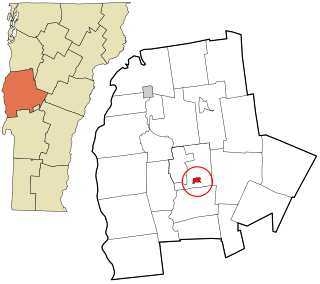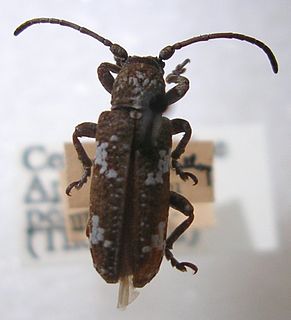Related Research Articles

Colossae was an ancient city of Phrygia in Asia Minor, and one of the most celebrated cities of southern Anatolia. The Epistle to the Colossians, an early Christian text which identifies its author as Paul the Apostle, is addressed to the church in Colossae. A significant city from the 5th century BC onwards, it had dwindled in importance by the time of Paul, but was notable for the existence of its local angel cult. It was part of the Roman – and then Byzantine – province of Phrygia Pacatiana, before being destroyed in 1192/3 and its population relocating to nearby Chonae.
Jesus Justus was one of several Jewish Christians in the church at Rome mentioned by Paul the Apostle in the greetings at the end of the Epistle to the Colossians 4:11.
Aristarchus my fellow prisoner greets you, and Mark the cousin of Barnabas, and Jesus who is called Justus. These are the only men of the circumcision among my fellow workers for the kingdom of God, and they have been a comfort to me.

Epaphras was an observer of the Apostle Paul mentioned twice in the New Testament epistle of Colossians and once in the New Testament letter to Philemon.
Epaphroditus is a New Testament figure appearing as an envoy of the Philippian church to assist the Apostle Paul. He is regarded as a saint of the Orthodox Church and the Catholic Church, first Bishop of Philippi, and of Andriaca, and first Bishop of Terracina, Italy. There is little evidence that these were all the same man.
In biology, a species is the basic unit of classification and a taxonomic rank of an organism, as well as a unit of biodiversity. A species is often defined as the largest group of organisms in which any two individuals of the appropriate sexes or mating types can produce fertile offspring, typically by sexual reproduction. Other ways of defining species include their karyotype, DNA sequence, morphology, behaviour or ecological niche. In addition, paleontologists use the concept of the chronospecies since fossil reproduction cannot be examined.

Netumbo Nandi-Ndaitwah is a Namibian politician who is the Deputy Prime Minister of Namibia since March 2015. She has also been serving as Namibia's Minister of International Relations and Cooperation since December 2012. From March 2010 to December 2012, she was Minister of the Environment and Tourism. Nandi-Ndaitwah is a member of SWAPO, Namibia's ruling party, and a long-time member of the National Assembly of Namibia. In 2017, Nandi-Ndaitwah was elected vice-president of the Swapo Party at the party's 6th Congress. She is the first woman to serve in that position.
E. C. Osondu is a Nigerian writer known for his short stories. His story Waiting won the 2009 Caine Prize for African Writing, for which he had been a finalist in 2007 with his story Jimmy Carter's Eyes. Osondu had previously won the Allen and Nirelle Galso Prize for Fiction and his story A Letter from Home was judged one of "The Top Ten Stories on the Internet" in 2006.
Mark the cousin of Barnabas is a figure mentioned in the New Testament, usually identified with John Mark.
Lieutenant General Epaphras Denga Ndaitwah is a Namibian diplomat and military commander. He was the chief of the Namibia Defence Force (NDF) from 24 January 2011 to 31 December 2013.
Ndaitwah is a surname. Notable people with the surname include:

East Middlebury is a census-designated place in the town of Middlebury, Addison County, Vermont, United States. Its population was 425 as of the 2010 census.

Union Mission Site is a historic site of a church mission and school about 5 miles (8.0 km) northeast of Mazie, Oklahoma.

Apomecynini is a tribe of longhorn beetles of the subfamily Lamiinae.
Otenis is a genus of longhorn beetles of the subfamily Lamiinae, containing the following species:

Colossians 1 is the first chapter of the Epistle to the Colossians in the New Testament of the Christian Bible. Traditionally, it is believed to have been written for the churches in Colossae and Laodicea by Apostle Paul, with Timothy as his co-author, while he was in prison in Ephesus, although there are debatable claims that it is the work of a secondary imitator, or that it was written in Rome. This chapter contains the greeting, thanksgiving and prayer, followed by a "Christological Hymn" and the overall thesis of the letter.

Colossians 4 is the fourth chapter of the Epistle to the Colossians in the New Testament of the Christian Bible. Traditionally, it is believed to have been written for the churches in Colossae and Laodicea by Apostle Paul, with Timothy as his co-author, while he was in prison in Ephesus, although there are debatable claims that it is the work of a secondary imitator, or that it was written in Rome. This chapter contains the final exhortations and greetings.
Otenis epaphra is a species of beetle in the family Cerambycidae. It was described by Heller in 1917.
The gens Pacilia was an obscure plebeian family at ancient Rome. Few members of this gens are mentioned by the ancient historians, of whom the most famous may be a certain Marcus Pacilius spoken of by Cicero in his second oration against Verres. However, many Pacilii are known from inscriptions.
The Students Union of Namibia (SUN) is a students organisation in Namibia. It was formed in 2019 by a break-away faction of the Namibia National Students Organization (NANSO).
References
- ↑ Biolib.cz - tribus Apomecynini. Retrieved on 8 September 2014.